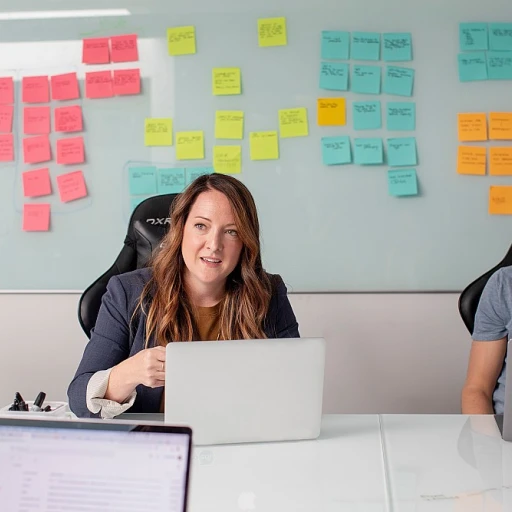Understanding the Importance of Reflections in Meetings
The Significance of Reflective Practices in Team Meetings
In today's fast-paced work environment, the need for effective meetings is greater than ever. Reflections can serve as a critical tool to enhance the quality of team meetings. Reflective practice allows team members to share personal insights and foster deeper understanding and collaboration. One key aspect of reflections in meetings is the ability to encourage participants to reflect on the purpose and objectives of the meeting itself. This requires individuals to think critically about their contributions and the action items that arise during the discussion. At the relevance of meetings should not be overshadowed by routine tasks or mundane discussions. Instead, it should focus on eliciting meaningful dialogue and promoting engagement among team members. When team members are given the opportunity to reflect, their insights become valuable contributions to the collective goal. Moreover, reflections work well as an integral part of a continuous improvement process, helping teams to address any issues that may arise and explore solutions. By dedicating time to reflect after meetings, teams can identify areas of improvement and share actionable feedback, ultimately enhancing team dynamics and efficacy. Reflection quotes can also be a powerful way to inspire and motivate participants. Integrating such quotes can set a positive tone and open the minds of meeting attendees to new perspectives and possibilities. Meeting reflections allow for a moment of pause, a time to review meeting minutes and assess if the objectives have been met. It also offers a chance to discuss whether additional questions need to be addressed or if further reflection is required for subsequent meetings. In summary, adopting a reflective approach to meetings is not merely a trend, but a necessity for optimizing the overall effectiveness of team interactions. Instilling such practices can lead to substantial improvements in communication and collaboration within any organization.Identifying Key Reflection Points During Meetings
Pinpointing Moments of Reflection Within Meetings
When it comes to meetings, identifying key moments for reflection is crucial for driving productivity and understanding. Reflective thinking during meetings allows team members to contemplate their performance and devise strategies for improvement. Here are several pivotal points within meetings where reflections prove beneficial:- Opening Reflections: Start the meeting with a brief reflection that sets the tone for the agenda. Ask team members to share a reflection or quote to stimulate thoughtful engagement.
- After Agenda Items: Once agenda items have been discussed, take a moment for reflection. Encourage members to reflect on the points raised and share potential solutions or improvements.
- During Transitions: Use transitions between topics as an opportunity for reflection. Encourage team members to pause and reflect on what has been discussed before moving onto the next agenda item.
- Closing Reflections: End the meeting with a reflective summary to ensure all team members leave with a clear understanding of their roles and any action items.
Strategies for Implementing Reflections in Meetings
Incorporating Reflection Techniques
- Start with opening reflections: Begin each meeting by prompting team members to share short quotes or personal reflections. This sets the tone for an open environment where ideas can flow freely. Consider posing questions like, "What reflection from your recent work life had an impact on you?" This encourages people to reflect on and bring in personal experiences which enrich the discussions.
- Utilize a reflection template: Implement a structured template for meeting reflections. A template helps capture important aspects such as key discussion points, decisions made, and action items. This structured approach ensures that vital information isn't lost and can serve as a point of reference for future meetings.
- Encourage team participation: Allocate specific times during meetings for all team members to share thoughts on the progress. Questions can be directed to stimulate reflections such as "How do you feel about the outcomes so far?" This helps gauge the team's views and also helps in identifying potential challenges early.
- Leverage the role of note takers: Having a dedicated note taker who can capture meeting minutes and reflections can be beneficial. This role ensures that the reflections shared are documented accurately and can be revisited in future team meetings.
- Time for personal reflection: Allow members to take a few moments to jot down their reflections before the meeting starts or during a pause. These personal reflections can provide valuable insights when shared with the team.
By adopting these strategies, you'll foster a meeting environment where reflection is regularly integrated into your workflow. Through regular reflections, teams can continuously improve their dynamics and operational efficiency, similar to what's discussed in enhancing operational efficiency with tailored business optimization strategies (source: relevant SEO anchor).
Challenges and Solutions for Reflective Meetings
Overcoming Obstacles in Reflective Meetings
Reflective meetings, although beneficial, can present unique challenges. These obstacles often deter teams from fully embracing the practice of reflection, yet addressing them effectively can significantly enhance meeting outcomes.- Time Constraints: Allocating sufficient time for reflection during work meetings can be challenging. Teams often feel pressured by packed agendas and urgent action items. To mitigate this, try designating specific intervals within the meeting for reflection questions. Encourage team members to share their insights concisely, ensuring every voice is heard without monopolizing the time.
- Lack of Engagement: Securing active engagement from all team members during reflections can be difficult. Utilize methods like opening reflections or reflection quotes to inspire participation. Creating a safe environment, where everyone feels valued and respected, can foster an atmosphere conducive to sharing thoughts.
- Inconsistent Application: Integrating reflections inconsistently across multiple team meetings can lead to confusion and reduced effectiveness. Establish a template for reflections meetings that can be adapted to the specific needs of each session. Having a consistent structure helps teams maintain focus and get accustomed to regular reflective practices.
- Documenting Reflections: Capturing and organizing reflections in meeting minutes poses an administrative challenge, often falling on the shoulders of the note taker. Develop a systematic approach for documenting reflections that involves categorizing insights under relevant headings and linking them to broader team goals.
- Resistance to Change: Some team members might resist the introduction of reflective meetings, viewing them as unnecessary. Overcoming this resistance often involves clarifying the value of reflections and demonstrating how they can positively impact team dynamics and life at work. Using reflection quotes and real-life examples of successful reflective practices can help quell skepticism.












